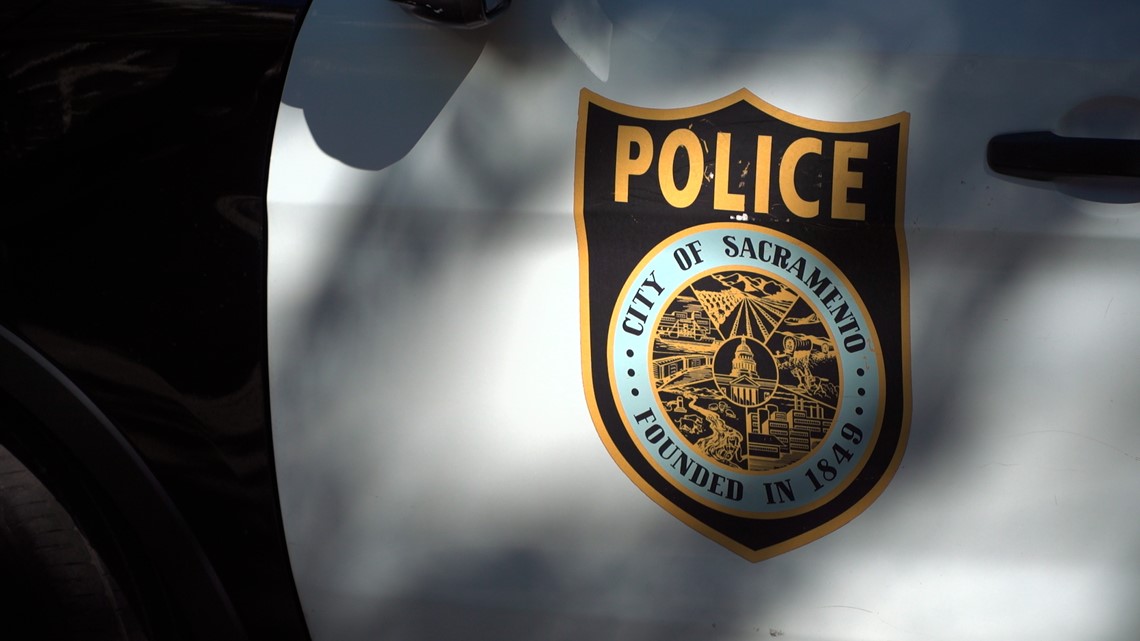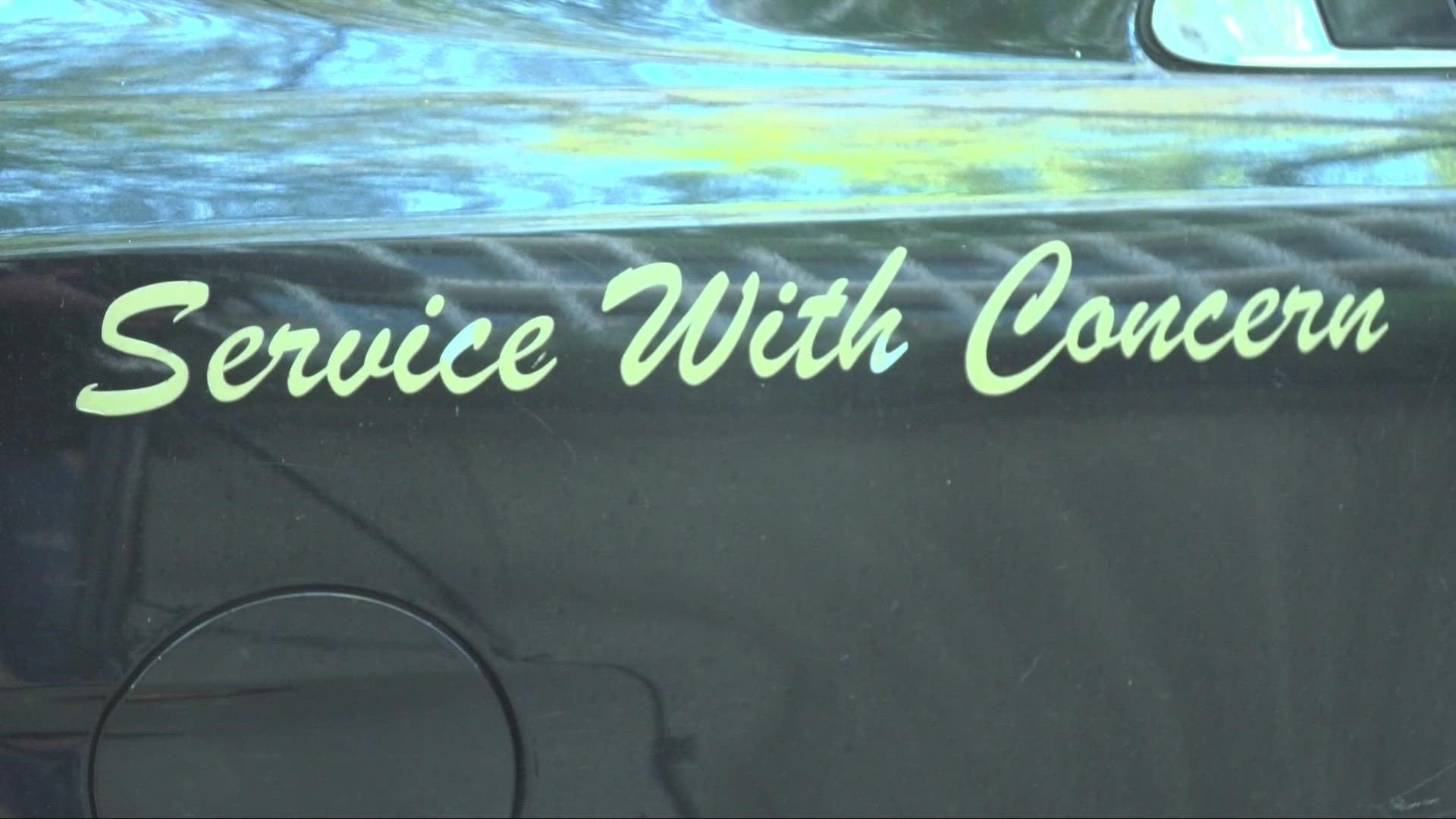SACRAMENTO COUNTY, Calif. — Some people call it 'Driving While Black.' Others say it's racial profiling. Whatever you call it -- past and current research shows Black drivers are more likely to be stopped by law enforcement than white drivers.
Henry Williams II, a Black man, says he experienced racial profiling by Sacramento police. Police documents show the traffic stop happened at the intersection of San Juan Road and Truxel Road on June 10, 2020.
Williams says he was waiting at a red traffic signal light when an officer drove by, saw him through the front windshield of his car, and got behind his vehicle. At that point, he says, the officer pulled him over on the side of the road.
"I was terrified, I tried to remain calm," Williams said. "The officer said I was pulled over for tinted windows. Guns ended up being drawn. There were multiple units called out. The intersection was blocked off. I was pulled out of my car and handcuffed."
Police did not issue a ticket or fine for tinted windows. Instead, Williams says he was let go with a verbal warning.
"Police will pull you over for no reason, just the color of your skin," Williams said. "I drive a nice car and I'm an African-American. When police see you're Black with a nice car, they think you must be a drug-dealer or doing something wrong. That's not the case with me."


Williams filed a complaint with the Sacramento Police Department. Police confirmed receipt of the complaint, stating, "the complaint was investigated and the complainant was provided a disposition of that internal investigation."
Two years later, Williams is still shaken up by the traffic stop. He's also struggling to trust the police.
As a father, he says he's teaching his children early the do's and don'ts of getting pulled over by police, also referred to as 'The Talk' in Black communities. It includes explaining the importance of "putting your hands on the dashboard or the steering wheel, saying, 'sir' and not making any sudden or quick movements" for safety reasons.
"Police should do what they were sworn to do -- serve and protect," Williams said. "For other people, all I can say is, just make sure you comply and that you're cooperative and just try to make it home. Do whatever you got to do to make it home."
Sacramento police released a report last year on traffic stops between 2014-2019. The data, compiled by the nonprofit Center for Policing Equity, shows Black people, who only made up 13% of the population, made up 38% of traffic stops by police.
Once stopped, Black people were searched nearly 3x as often as white people. In comparison, the report shows white people, who made up 33% of the population, accounted for 29% of traffic stops by police.
ABC10's Race and Culture Team reached out to the Sacramento Police Department regarding racial disparities in traffic stops. The Sacramento Police Department sent the following statement, in full:
"The Sacramento Police Department takes any allegation of actual or perceived discrimination very seriously. In 2016, all officers were required to attend 12 hours of mandatory training regarding procedural justice and implicit bias. In 2017, all officers were required to attend 2 hours of mandatory instruction related to racial profiling (update). In 2019, all officers were required to attend 4 hours of mandatory instruction regarding Racial/Identity Profiling & Implicit Bias and most recently, in 2021, all officers were required to attend 4 hours of mandatory training regarding Cultural Competency and Implicit Bias. In addition to the above listed mandatory training for all officers, academy graduates attend mandatory academy follow-up training (MAFT) on numerous topics including working with community-based organizations, fair and impartial policing, gender awareness, mental health, and procedural justice. We will continue to maintain the highest level of transparency possible as we strive to maintain community trust. The Sacramento Police Department’s Violent Crime Reduction Strategy explicitly recognizes the negative impacts that over-policing can have on communities and uses a data-driven approach to focus on the small number of violent offenders in small geographic areas to address violent crime, down to specific blocks where violent crime is likely to occur. As a department, we value the safety of everyone from every neighborhood in our city."
There are also racial disparities in traffic stops by sheriff’s offices in California - not just local police departments.
A new report by nonprofits Catalyst California and ACLU of Southern California reveals the prevalence of racially-biased patrol activities, particularly traffic stops, by sheriff's departments in Los Angeles, Riverside, Sacramento and San Diego Counties.
According to the report, deputies with the Sacramento County Sheriff's Office stopped Black people nearly 5x more than white people in 2019 for non-moving violations, like registration or other administrative issues.
The report found that Black people experienced the highest stop rates compared to other groups. It goes on to explain that "Sheriff's departments racially biased patrol activities inflict devastating harms, including dehumanization, degraded public health, economic extraction through fees and fines, physical violence through uses of force, and devaluation of life."
"Outdated 'tough-on-crime' approaches not only fail to advance safety, but also disproportionately harm communities of color," said Chauncee Smith, Senior Manager of Reimagine Justice & Safety at Catalyst California. "Rather than wasting billions of public dollars on unproductive patrol activities, policymakers must rethink 'public safety' and ensure that our collective welfare is truly rooted in the public — community members, especially those of highest need — rather than law enforcement."
The same report recommends reallocating public budgets to care and community-centered hard reduction strategies addressing root causes of social problems. The report also calls for decriminalizing minor offenses posing limited to no public safety risks to prevent inequities.
"Sheriff's departments across the state sell themselves as the protectors of the public, but the data tells a different story," said Eva Bitran, Staff Attorney with the ACLU SoCal. "Deputies spend the vast majority of their time on initiating stops that target Black Californians. Sheriffs do not keep us safe; investing in education, healthcare, and community services does."
ABC10 reached out the Sacramento County Sheriff's Office for a response regarding traffic stops. Our Race and Culture Team also sent interview questions in advance regarding how the department is working to address racial disparities in traffic stops and build trust with historically marginalized groups and communities. The department did not respond to the media request.

















